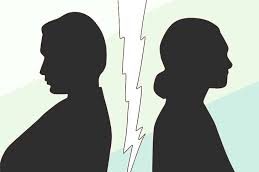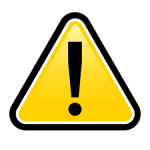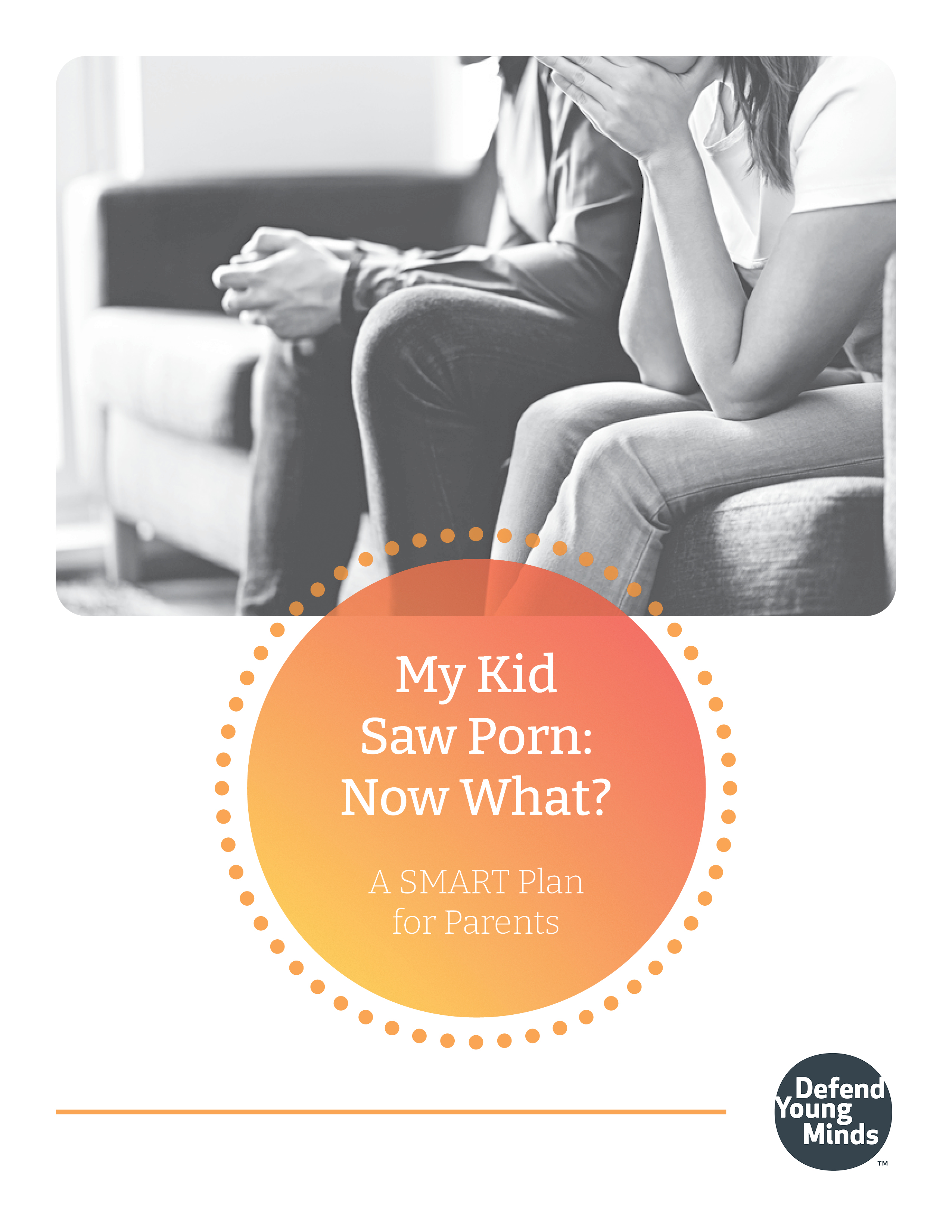
What 10 Parents Learned When Their Child Was Caught in the Porn Trap [Part 2]
In this 3-part series, follow along as 10 parents describe when they discovered their child looking at inappropriate things and their journey of helping a child overcome the addictive pull of pornography—and the advice they hope to pass along. Today, we’ll examine the difficult emotions that real parents of children caught in the porn trap go through. Plus, the joy and sweetness they experience when healing and recovery begins for all. Be sure to also read Part 1 and Part 3.
Changing the rules of an unfair game
The rules of the internet put children at a disadvantage. In some ways, it’s more likely for a child to stumble across pornography than an adult. Certainly, children and teens are more vulnerable. Unexpected sexualized images or videos (often violent) can make them feel scared, overwhelmed and confused. They can also elicit a sexual response.
That’s the ultimate goal of pornography: excite the viewer, overwhelm the senses, arouse the body. It’s a hook. Developmentally, kids’ brains and bodies weren’t meant to process this kind of information. It’s an unfair game against an opponent they didn’t ask to play.
By default, the 10 parents interviewed in this series also found themselves in the game without warning. Love for a child compelled them to stand against the faceless giant that is pornography. They’ve been through battles many of us can’t imagine. We can learn from their wisdom and experience.
Fortunately, just because a child is looking at inappropriate things, does not mean they need to stay caught in the porn trap. There is much we can do to give our kids a fighting chance.
Becoming empowered to make change
This second in a 3-part series looks at the transitions parents go through when they have a child caught in the porn trap.
- First, the trauma of feeling like the world you know has come undone.
- Next, finding strength in vulnerability and learning ways to rebuild.
- And finally, feeling secure and hopeful on a new path forward.
This post gives you a sneak peek behind the scenes with these incredible parents. You will learn:
- How their own emotions affected daily life at home.
- Why (and why not) parents share this experience with others.
- The challenges and triumphs of finding resources suited to their child.
As you read, keep in mind these parents are navigating through uncharted territory. No previous generation provided a parenting map on what do when your child is looking at inappropriate things. Consider how many other parents might be somewhere on this journey. If so, what would it take to help them feel empowered to make change?
The following stories are anonymous — all names have been changed.

PYM: What emotions did you feel throughout this experience? And how did that affect daily/family life?
Each parent described strong emotional responses to their child’s involvement with pornography. Part of daily life was finding ways to manage their own stress, anxiety and concern about the future. One mom said she found it difficult to stay calm knowing her child was actively involved in stuff that didn’t reconcile with their core values. It was a learning process.
It added an edge to daily living
Because I had a child in danger, I felt I had to be on high alert all the time. I started to become suspicious of everything on the internet and everyone in the house. It added an edge to daily living that really shouldn’t have been there. I began to question what I could trust. —Sharon
I worried too much about the future
I felt a lot of stress, worry and fear. I imagined everything that my child had viewed on screen would spill over into real life. I wanted to know that his future relationships would be built on the things they should be built on—like tenderness and love. I still have to work to hush my fears. —Alana

Fear of the future is definitely still my worst enemy. —Macey
I shut down for a time
When our son’s compulsive behavior came to light, I hit an all time low. My husband and I had already gone through so much pain related to pornography and sexual addictions. I remember thinking, there’s no hope. It felt like we were the blind leading the blind and the therapists were just making up crap. Initially I shut down and went through a period of depression. There were days I had to force myself to get out of bed and get dressed. I felt so alone. —Macey
We felt more tension in our home

Being a blended family has its own challenges. Having a son arrested for downloading a file containing child pornography takes that challenge to a whole new level. His older brother, who is agoraphobic (prone to panic attacks), had been making great strides forward. We’ve since seen a significant regression. He’s disgusted in his brother. Their stepdad is a survivor of childhood sexual abuse. At first, I thought he might leave but he’s actually been extremely supportive. Between court dates, therapy, home monitoring, and the constant unknown I feel like I have aged thirty years in the last two. —Ruth
My wife and I didn’t always see eye-to-eye on how we should deal with the situation, so that caused tension. I think it was more emotional for her. I had a hard time understanding where she was coming from. —Josh
PYM: Have you been able to share this struggle with anyone? If so, who has been your greatest support?
Interestingly, none of the parents interviewed sought immediate support from close friends or extended family when their child’s involvement with pornography was discovered. For many, the perception of risk seemed too great. Some were concerned that their child would be labeled as a pervert or sexual deviant. Others worried they would be judged as inept parents. A few said it just didn’t occur to them to open up.
However as time wore on, the parents (mothers especially) found that sharing their experience became extremely important. Not just for their own well-being, but also to better support their child. One mother said that the feeling of being all alone in this—that yours is the only family going through it—is the worst part. When parents did reach out for support, they were incredibly strengthened by it.
Pride kept me from sharing.
My first thoughts were really directed inward. Like, how our son’s behavior reflected so poorly on our family. I’m not proud of this. And I’ve certainly changed my tune. But looking back, it did not occur to me to share this with anyone. I was too concerned about protecting my reputation.
Eventually, my son found a group therapy program where we saw real progress occur. I was so grateful to the director of this group that I asked what I could do to give back. He suggested I contact some of the other moms and find out how they were coping. When I made that first phone call I was terrified. I was so full of shame. But because I was ready to change, I did it! It’s been the best thing ever.
Stigma silenced us
In my heart, I knew other families might be struggling just like ours. But all I’d ever heard about pornography was how evil it was. Obviously I was afraid of what people would think. If others found out what my son was struggling with, I was sure they would only see him as a bad kid.
I later learned that two of my best friends' kids were going through the same thing in their home. Honestly, I think everyone’s kids were. It was a silent Tsunami that had hit us all. It would have been so much better if we had opened up. We could have had each other to lean on through the worst of it. —Sharon
I didn’t want to share, but I did
There was one time at my church I felt so strongly to share with one individual in particular. I didn’t want to at all. This woman and I weren’t really that close. But the prompting was too strong to ignore. In the end, I was completely honest and explained how I was afraid of being judged. To my surprise, we had a lot more in common than I had expected. I found out that she and her family talked openly in their home about pornography’s dangers. I took strength from her. It was so comforting to know I wasn’t alone. —Sarah
I could warn other parents

At first, I didn't want to tell anyone what we were going through. But then I began to trust and reach out to my closest friends. I figured there had to be other people going through similar things. At the very least, me speaking up could warn other parents. I realized this was not something that should be kept in the dark. These are just kids. And they are getting into serious trouble. In general, the response I’ve had is very supportive. There’ll always be one or two that doesn’t get it. But I know I’m doing everything I can. —Ruth
PYM: What resources were most valuable to you and your child as you worked through the recovery process?
With persistent effort and much trial and error, parents typically found some outside sources to support their child’s recovery. However, all parents agreed that community resources and information for families about pornography is severely lacking. One obstacle is that most addiction recovery programs are structured and designed with adults in mind.
Related: Does My Child Need Counseling? Reassuring Advice from a Porn Addiction Therapist

Getting educated about the brain
I did a lot of searching on my own. I attended all the meetings and information nights I could find. There, I was given statistics and lists of reasons why porn was harmful. But never any practical advice on how to help a child towards healing. I started to feel like no one had any answers.
Then I learned about the addiction cycle. That was a game-changer. The idea that pornography affects the brain helped me understand why my son couldn’t just think himself into better habits. We needed to heal the brain. And yet, the therapists we had seen kept trying to treat just the symptoms. It was a presentation from Fight the New Drug that helped us put all the pieces together. —Alana
Related: How Porn Use Becomes an Addiction (Simplified!)
[[CTA]]
Taking the bits and pieces that work
Our son participated in a youth recovery program for a time. For him, it wasn’t the perfect fit. However, the parent group was hugely beneficial to me. Among other things, we talked about shame and how detrimental it is to the recovery process. The group taught me how to become a better support to my son. I learned how to avoid saying things that increased his shame. —Macey
One article that changed everything
After about three years of on-and-off tech bans, lectures, and pep talks, I read an article that changed my whole approach. It explained that getting over a pornography habit wasn’t something you could do your own. It advised getting help right away. That very day I called and got my son enrolled in counseling.
He actually loved it. He’d come out of those sessions feeling great. It wasn’t a quick fix. It didn’t make the pornography problem disappear. But therapy taught our son that there was a process to go through and work to be done. It was the first time we felt like we were making tracks.
Aside from therapy, time has been our most valuable resource. The information about pornography and addiction is so much better now than when we began this journey. Plus, I needed time to figure things out. And so did my son. —Sharon
Finding the therapy that fits
The moment you learn that your child has exposed himself to your best friend's daughter everything changes—everything goes on high alert! First, we met with the police. They were really good at giving us better insights into our son’s behavior. But no one had any suggestions of where we could go for help. The whole process was so frustrating.
Related: Sexual Behavior in Children: What's Normal? What's Harmful?

On our own, we found a therapist treating adult male pornography addiction and problematic sexual behaviors. He agreed to see our son. At home, my son and I worked together studying an addiction recovery program that was meant for adults. We did everything we could do. Not much seemed to be helping.
Individual therapy gave him a place to be accountable. But it wasn’t making a difference in his behavior. It seemed like our son could achieve self-mastery in any other area of his life (exercise, school, eating, spiritual enrichment). But for this, there was no hold. No stick.
Then we found a group therapy with peers his age. That was a shut-the-front-door kind of experience. It was the first thing that spoke to our son at his level. At age 16, he was finally motivated to make changes. —Toni
Related: Helping Tens of Thousands Quit Porn for Good: Interview with Fortify
3 things 10 parents want you to do!
The parents interviewed were pleased to share the details of their experience because they want to empower you to be proactive:
- Start the conversation TODAY with your kids and keep following up.
- Take the lead. Get your family and friends talking about solutions.
- Got questions of your own? Ask a friend or join an online support community like Tackle the Tech Together.
What else is in this series?
Pornography harms countless families across the globe. In Part 1 parents shared exactly what it’s like to discover your own child is immersed in a habit of using pornography and how they learned to mentor their child towards a path of health.
Sometimes it's hard to see progress when you are immersed in the battle. Part 3 asks parents to focus on the positive outcomes they experienced in seeing a child work to overcome using pornography. Plus practical advice on how parents can help protect children today.

.png)
.png)
Brain Defense: Digital Safety Curriculum - Family Edition
"Parents are desperate for concepts and language like this to help their children. They would benefit so much from this program - and I think it would spur much needed conversations between parents and children.” --Jenet Erikson, parent











